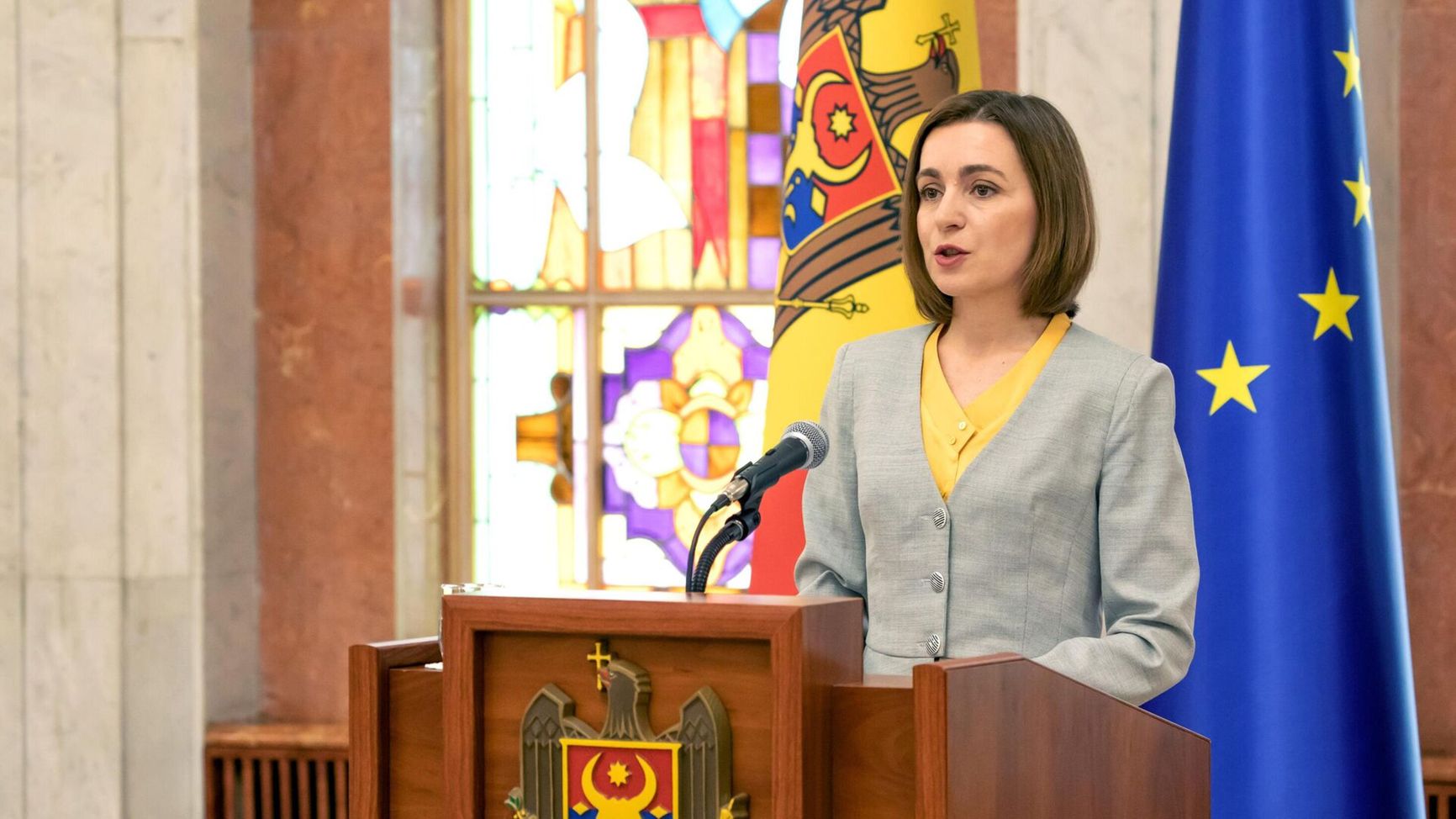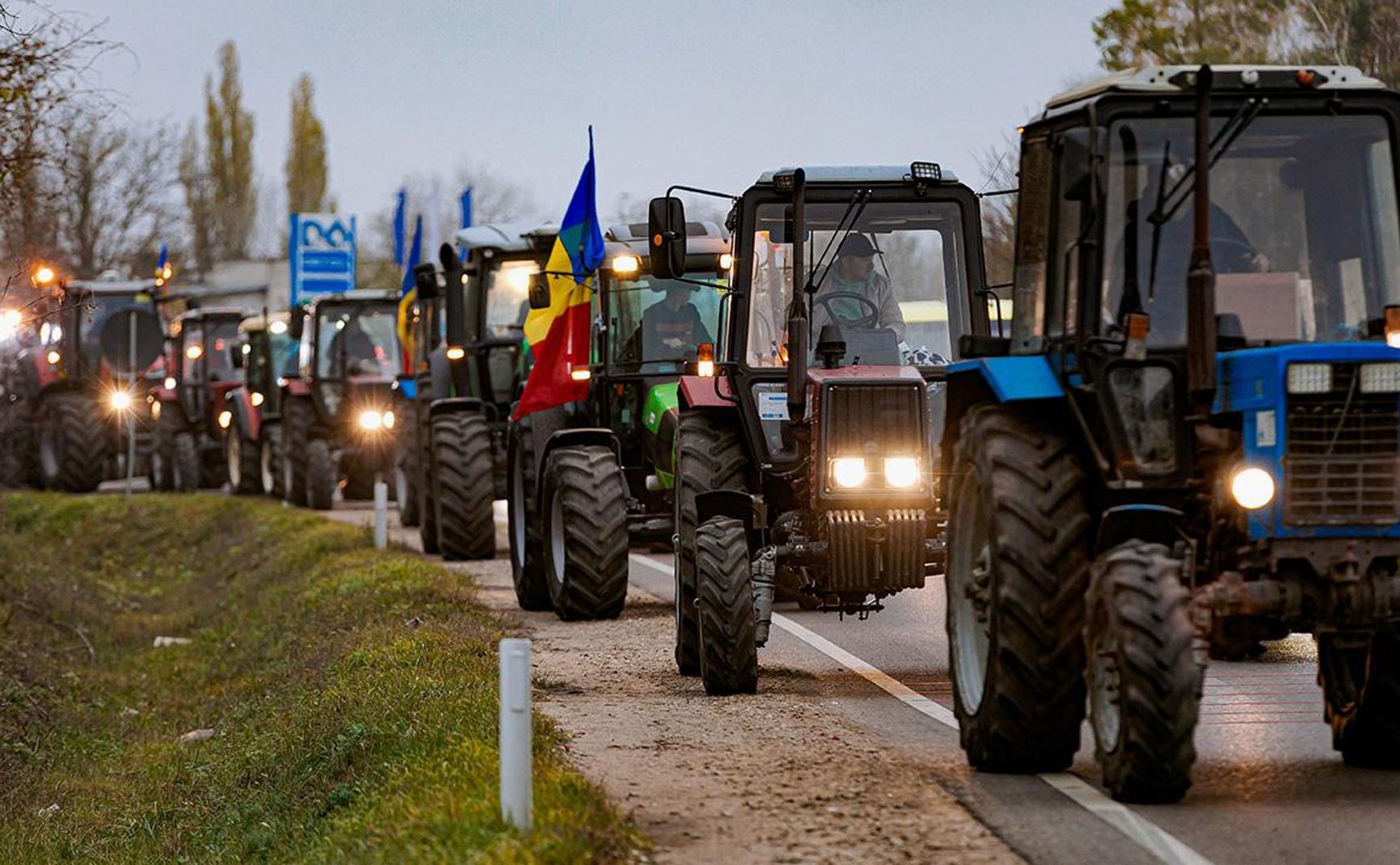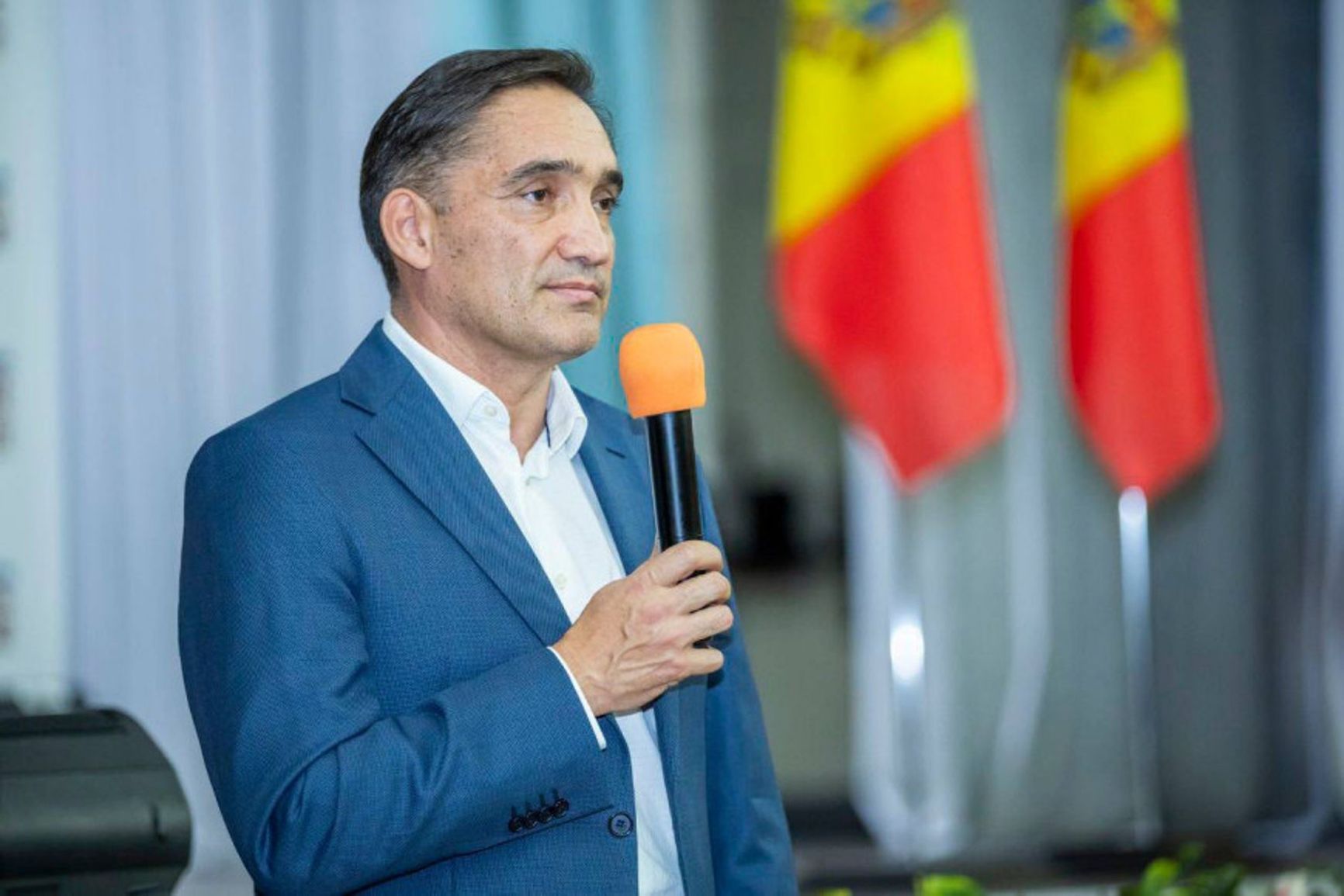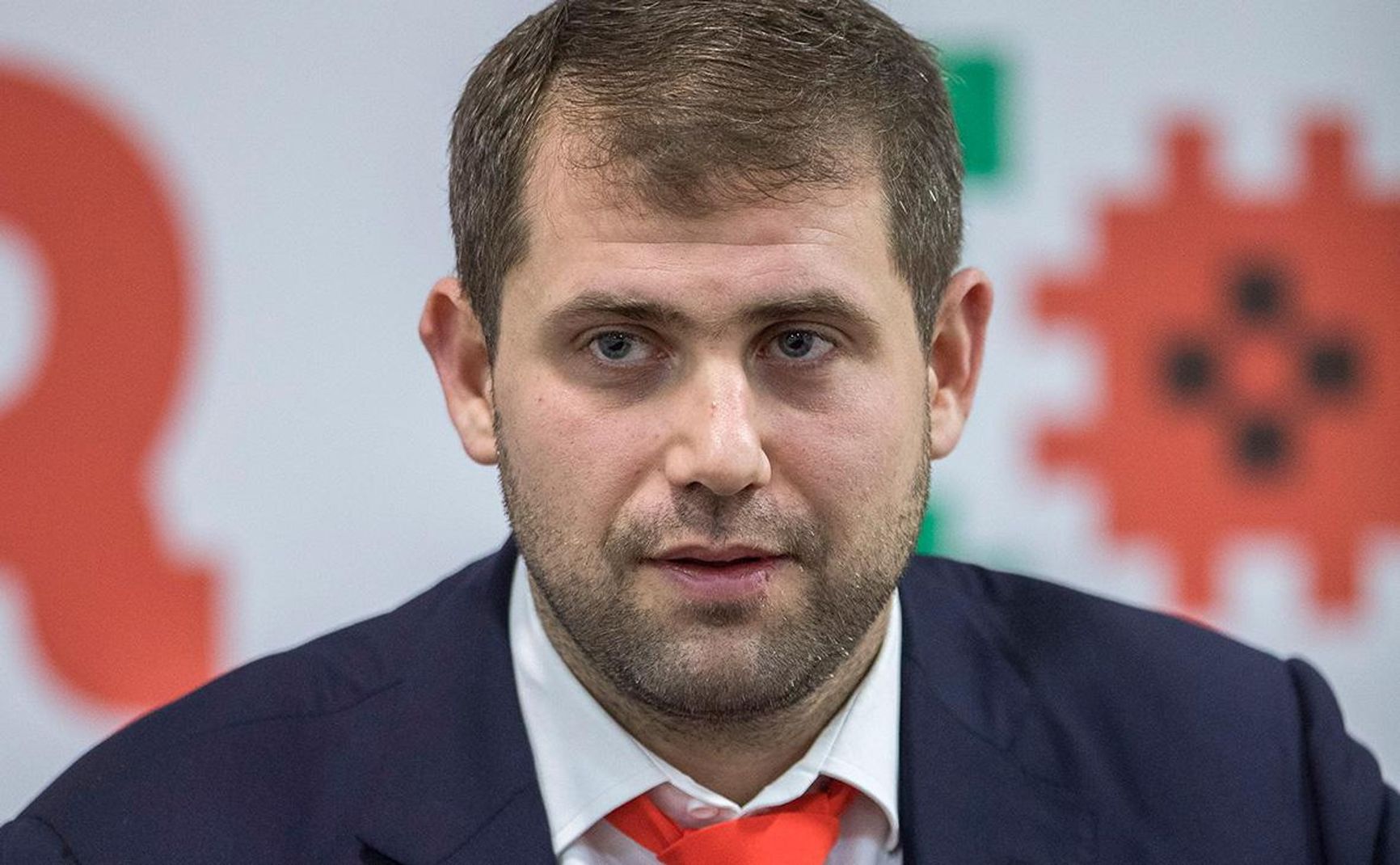

On October 20, Moldova will hold its presidential election. At first glance, there seems to be little suspense — polls show that the incumbent president, Maia Sandu, is the overwhelming favorite. However, her chances of winning in the first round could be threatened by a network of supporters loyal to the exiled Moldovan oligarch Ilan Shor. Estimates suggest that this network includes between 120,000 and 400,000 people, making up around 10% of the electorate. At a critical moment, these supporters are expected to receive instructions on how to vote. Shor is also rallying people to vote against Moldova's European integration in a referendum set to take place on the same day. A defeat in the referendum would be a serious blow to Sandu, giving her opponents ammunition to claim that the country is not truly interested in joining the European Union.
Content
Calm before the ballot
An inadvertent opponent
The Shor corps
Who Shor will endorse?
Calm before the ballot
Polls released ahead of Moldova’s presidential election and the accompanying referendum on European integration suggest a lack of suspense. Incumbent President Maia Sandu is expected to receive 36.1% of the vote. As for the referendum, 68.3% of respondents say they plan to participate, with 63.2% supporting the country’s path toward EU membership.

The plebiscite was initiated by the Moldovan authorities. Its purpose is to enshrine European integration in the country’s constitution, following the examples of Georgia and Ukraine. However, formally, the referendum does not affect the pace of Moldova’s EU integration. The country is already in negotiations for membership, and that process depends most of all on protocols set in place by Brussels.
For Sandu, the referendum is a tool to rally public support in her favor. She and her team have worked hard to make Sandu’s name synonymous with “European integration.”
For Sandu, the referendum is a tool to rally public support in her favor
This political strategy is no accident. Sandu became president in 2020, and a year later, her party, Action and Solidarity, secured a parliamentary majority that allowed it to form a government independently. But then the problems began.
Maia Sandu came to power during the pandemic, which hit the Moldovan economy hard. Then, the energy crisis struck — rising gas prices in the country triggered a chain reaction, making almost everything more expensive and driving up inflation. Soaring prices led to public discontent, and the situation only worsened with the onset of Russia's war against Ukraine. Familiar supply chains were disrupted, and traditional markets for many Moldovan agricultural producers — Russia and Belarus — became difficult or impossible to access.

Farmer protest outside the government building in Chisinau, October 2024
Moldovan authorities, who had come into office promising to fight corruption and poverty, reform state institutions to make them more transparent and efficient, and ensure a fair judicial system, were forced to deal with more immediate challenges. As a result, cases against well-known corrupt figures in the country have stalled in the courts, while the accused remain at large.
Cases against well-known corrupt figures in the country have stalled in the courts, while the accused remain at large
The process of reforming the judicial and prosecutorial systems through the evaluation of judges and prosecutors by international experts (pre-vetting and vetting) lacked transparency and was marred by scandals, sparking outrage among judges and prosecutors. It became impossible for the ruling team to present this as a success.
Even Sandu acknowledges the challenges: “In this difficult process, of course, we have made mistakes, but today, no one in the leadership is giving orders to the judicial system. We must complete the cleanup of the system and not stop halfway.”
An inadvertent opponent
According to experts, one of the government's mistakes — which they prefer not to discuss — was the dismissal of Prosecutor General Alexandr Stoianoglo. He had taken over the General Prosecutor's Office in 2019 and was removed from his post after Maia Sandu's party formed a government that fall. Officials and deputies from Sandu’s team accused him of abuse of power and corruption. However, the case of abuse of power later collapsed in court. Moreover, the European Court of Human Rights ruled this year that Moldova had violated Stoianoglo’s right to a fair trial.

“Stoianoglo is a very honest person. He’s not a profiteer and hasn’t been involved in any schemes. All the charges against him, in my view, were fabricated,” said political commentator and former Moldovan ambassador to the UN Alexei Tulbure in an interview with The Insider. He described Stoianoglo’s dismissal as a mistake by the current government.
Today, Alexandr Stoianoglo is Maia Sandu’s main competitor in the presidential race. Although there is a significant gap between them — only 10% of voters support the challenger — this opponent was created by the government's own actions. Stoianoglo is a staunch supporter of European integration, but he believes the country must also rebuild and strengthen relations with Russia.
Stoianoglo is a staunch supporter of European integration, but he believes the country must also rebuild and strengthen relations with Russia
He is supported by former Moldovan President Igor Dodon and his Socialist Party, a movement that carries an unmistakable image as a pro-Russian political force. This means that Stoianoglo, who calls himself a pro-European politician, could nevertheless attract the votes of many Moldovans who continue to sympathize with Moscow — despite Russia’s war with Ukraine.
In any case, it seems that Sandu’s position is secure. The ten candidates opposing her collectively gather about 30% of the vote, according to polls. However, to win in the first round, Sandu needs to secure more than half of the votes cast, as required by the country’s constitution. Sources from Sandu's team told The Insider that her chances of a first-round victory are 50/50.
The Shor corps
Among the 11 registered presidential candidates in Moldova, none openly opposes EU integration. However, some argue that the republic should simultaneously develop mutually beneficial relations with Russia. Apart from Stoianoglo, these candidates include the leader of Our Party, Renato Usatîi (third in the polls with 7.5%), former Governor of Gagauzia and head of the Moldova platform, Irina Vlah (4.1%), and several others.
The only Moldovan politician who openly campaigns against the country's accession to the European Union and advocates for a pivot toward Russia and the Eurasian Economic Union is fugitive businessman Ilan Shor. In 2023, a Moldovan court sentenced Shor in absentia to 15 years in prison for financial fraud — namely, the embezzlement in 2014 of $1 billion from three Moldovan banks.

Ilan Shor
In 2019, Shor fled from Moldova to Israel but later relocated to Moscow. He continues to manage his Moldovan political bloc, Victory, remotely. (The Insider previously wrote in detail about Ilan Shor and his connections with Russia).
Shor's followers are counted among the leadership of ANO Eurasia, a newly established Russian non-commercial organization. A member of the group’s council is Natalia Parasca, head of the Revival party, which is part of the Victory bloc. The council itself is headed by Alena Arshinova, First Deputy Chair of the Russian State Duma, who is well-acquainted with Moldova, having grown up in Tiraspol.
ANO Eurasia actively recruits helpers in Moldova, primarily through numerous Telegram bots. Their recruitment message reads: “Hello. If you’re here, it means you want to become a Victory Volunteer, take part in the ANO Eurasia project, and contribute to Moldova's development.”
Volunteers are expected to “conduct awareness campaigns among citizens,” “express their opinions by participating in weekly polls and reacting to news” on Telegram, and “receive and distribute printed and electronic materials related to the goals and objectives of promoting integration into the Eurasian Economic Space.” Additionally, they are required to participate in various events, including protest actions.
Among other things, volunteers are required to participate in various events, including protest actions
The activities described above come with promised payments: “For completing these tasks, you will receive bonuses to your account at the end of the month.” A journalist from the Moldovan investigative outlet Ziarul de Gardă managed to infiltrate Shor's network, easily opening an account at Russia's Promsvyazbank with a fake ID and receiving money for participating in Victory bloc activities.
According to various estimates, Shor's entities already have data on tens of thousands of people. Moldovan police recently reported that, this past September alone, $15 million was illegally brought into or transferred from Russia to Moldova, with at least 130,000 people receiving payments. Sources within Moldovan state institutions told The Insider that more than 300,000 people may be part of the network built by Shor's team. This is a significant number for a small country: Moldova has around 3 million registered voters, and in the last presidential election in 2020, 1.4 million people voted.
More than 300,000 people may be part of the network built by Shor's team
Who Shor will endorse?
Victory does not have its own candidate in this election. The bloc wanted to nominate parliamentary deputy Vasile Bolea for the presidency, but the Moldovan Central Election Commission denied his registration. However, most observers are convinced that before the vote, Ilan Shor will indicate which candidate his supporters should support.
“Somewhere near the finish line, Shor will name the candidate to vote for. The name will be sent via SMS. And I think this will have a certain impact,” political analyst Victor Ciobanu told The Insider.
Several candidates are linked to Shor. These include former prosecutor Victoria Furtună, whose name was virtually unknown before this election, and former Moldovan Prime Minister Vasile Tarlev. Both are outsiders in the race, but they are using their participation to openly attack Sandu and her referendum on various platforms, including public television, which is required to provide airtime to all candidates.

Victoria Furtună, Vasile Tarlev
Along with instructions on which candidate to vote for, those recruited will also be expected to vote against EU integration in the referendum. Many Moldovan politicians and parties, including some presidential candidates like Renato Usatîi, are campaigning against the plebiscite, further heating up the electoral atmosphere. If the referendum fails — a possibility, especially if turnout is low — it would be a significant political setback for the government that initiated it.
“This would open the door wide for pro-Russian forces to win the 2025 parliamentary elections. Without any military victories in Ukraine, gaining control of Moldova without firing a shot and reversing its geopolitical direction would be a major triumph [for Moscow],” says political analyst Victor Ciobanu. “That's why the Kremlin’s current goal is to derail the referendum. After that, they can shift focus to the bigger target — the 2025 parliamentary elections.”
If the referendum fails, it could benefit European countries and politicians who are reluctant to invest resources in outside states seeking EU membership, says Vadim Pistrinciuc, Director of the Institute for Strategic Initiatives. “In 2012–2014, enthusiasm in Brussels and other European capitals for accepting new members was much higher. Now, the situation is very different. The EU is dealing with inflation, and no one is eager to attract new members.”
Thus, Moldova's presidential election and referendum are not just about deciding who will hold power. They also carry a geopolitical significance, testing whether Moscow — despite the erosion of its influence since the start of the war in Ukraine — can still shape Moldova's internal affairs in the furtherance of Russian interests.